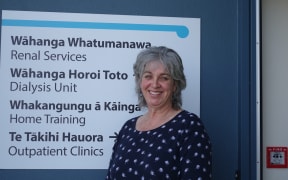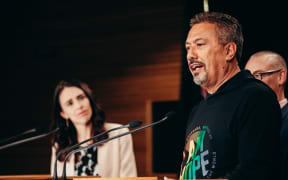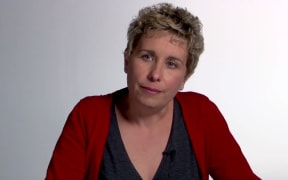A Whāngarei mental health nurse has won a $127,000 Māori health research scholarship to improve Māori recruitment and retention in nursing.

Māori patients are more likely to engage with the health system if they see themselves in it, Phillipa Barton says. Photo: 123RF
Phillipa Barton will interview Māori nursing students and registered nurses to identify the barriers they face entering undergraduate nursing programmes and working in the industry.
Māori nurse numbers have remained static at 7 percent for the last 40 years.
As a student there was little support for Māori entering the industry, and nothing much had changed, Ms Barton said.
"In my class of about 40-odd there was probably about 10 [Māori] and I think that's a reflection of Te Tai Tokerau and the fact that I was lucky to have 10 Māori classmates. But there was absolutely nothing in the programme that reflected our culture and it wasn't until we were weeks away from our state finals that we got told that we had to do something around cultural safety.
"The key issues we know of are things like the progression to get into tertiary study, that in itself is an issue for Māori. Then there's institutional racism, the issues Māori face coming into mainstream education environments and mainstream nursing programmes.
"And then when they become registered nurses, many are going into environments that are conflicting with their own cultural views and values and that in itself can be really challenging as well."
Disproportionate numbers of Māori nurses was a problem because Māori patients were more likely to engage with the health system if they saw themselves in it, Ms Barton said.
"It's about improving the kind of cultural and spiritual wellbeing of Māori and of everybody in our system, understanding that when they enter into the health system - be it a hospital, a GP or what ever - that it's about more than just the physical health, it's about the spiritual and cultural health as well.
"When Māori go into the health system they are scanning for a Māori face, they're scanning for a Māori nurse because they do want the health system to reflect them and to understand their lived experiences."
Health Research Council senior manager of Māori Health Research Investment, Stacey Pene, said Ms Barton's study had received an enthusiastic response from many quarters, including the Northland District Health Board who had indicated that they hoped the findings might influence their workforce development strategy.
"While the Ministry of Health and the Nursing Council of New Zealand are actively promoting the recruitment of Māori nurses - and have identified the retention of Māori within nursing undergraduate programmes as a priority - there is little published research about how to increase and retain the numbers of Māori choosing a nursing career.
"We are excited to support Phillipa with this Māori Health Career Development Award to help address some of these gaps."






